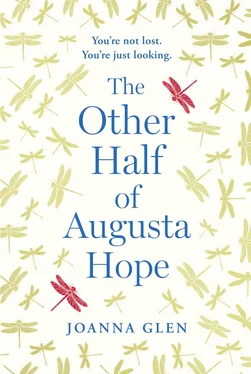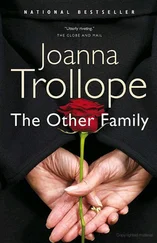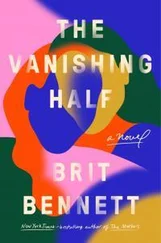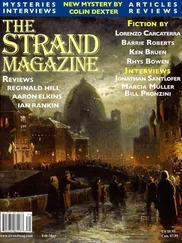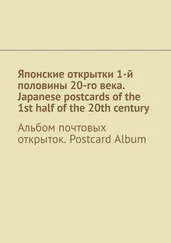‘That bird is so …’ I said.
And my father said, ‘Unnecessary.’
Which I suppose is what beauty is.
Yet later I found I couldn’t live without it.
Then my father said, ‘Unnecessarily extravagant.’
I said, ‘What’s extravagant?’
He said, ‘This is,’ turning in a circle and pointing all around him, at the sky and the trees and the water running, clear, over the pebbles.
My family went on washing in the stream, like the birds.
There were nine of us in the beginning.
The girl twins: Gloria and Douce, who liked to dress up in the shiny bridesmaid dresses brought down the hill by the Baptists in plastic sacks.
The boy twins: Wilfred, named after an English missionary who lived (and died) on our colline , and Claude, named after a French one.
Pierre was strong and stubborn, and you couldn’t tell what he was thinking.
Zion was the baby, and you could. Even from when he was tiny, he wore his heart on his sleeve, as they say in English.
My father’s face always had a glow about it as if he had a candle inside him, shining light through his eyes. I see his smile, so wide it seemed to reach from one earlobe to the other, and I hear his laughter, bubbling up from some mysterious source inside him. I see his fingers sculpting a whistle from a stick, or fashioning a football for us out of coconut and twine.
I feel my mother’s arms around me, the slight damp of her armpits on my shoulders, the warmth of my cheek against her soft chest and the deep shiver of belonging running down my spine to the soles of my feet.
All of us would sit around the fire, the twin girls singing; the twin boys tied together at the ankle and refusing to separate; Pierre quiet and brooding; the baby in my mother’s arms, with something still of heaven about him.
‘We’ll call him Zion,’ said my father, as my mother pushed him out between her legs to the sound of gunfire in the homestead on the left.
The women tied the umbilical cord into his navel.
‘Yes, Zion!’ said my father. ‘And we’ll all keep dreaming of the city that is to come!’
On the last day of 1999, the last day of the twentieth century, the last day of the old millennium, a day full of potential drama, there was a New Year’s Eve party at the Pattons’ house, number 13, the only detached house on the crescent, which was empty except for several towers of identical beige cardboard boxes in every room, each labelled in black marker pen with strange vowel-less codes on them like R1/shf or R3/cpd, which made you think that Mr Patton was a member of MI5.
The point of the party, whilst allegedly to celebrate the new millennium, was in fact to have lots of musical performances by the Patton children, practically every five minutes. Cello, violin, clarinet and a recorder ensemble, and then the whole lot all over again, until the rest of us nearly died of boredom.
Then it was 1 January 2000 – Julia and I were nine and a half years old, and the sci-fi millennium was here.
It made me hopeful. As if something monumental was about to happen. As if a battalion of silver robots was about to walk around the crescent. But actually, the next day, 2 January, in the rain, a grand piano rolled down the pavement. Because the Pattons (who were, as you’ve seen, very musical ) were moving out of Willow Crescent. We saw Tabitha Patton through the window in an entirely empty house practising her violin amongst the boxes. She was ten years old and doing Grade 8. She went to private school, where apparently everyone is a genius.
Grade 8!
‘It’s cruel,’ said my mother.
‘Or brilliant,’ I said (to be oppositional because, to be honest, I couldn’t stand Tabitha Patton).
‘Do you always have to disagree with me?’ said my mother.
Next thing we knew, a huge removal lorry arrived, with foreign words down its side, and the removal men started bringing out carved benches and jewelled cushions, antique bird cages and hat stands, and cardboard boxes in bright canary colours.
But better than any of these things was the appearance of a dark-haired boy, who could carry four boxes at once, easy as anything.
Julia and I went and hung around in our raincoats, pretending to have lost something on the roundabout, and we spied on him from behind the ragged branches of the willow tree, which were actually pathetic for spying because they were too thin and straggly, and only covered us down to our waists.
We walked over and started looking for our lost thing on the wet pavement outside number 13, and we found out that the boy’s name was Diego, and then we completely forgot about our lost thing, and when Diego asked us the next day if we’d found it, we had no idea what he was talking about.
Looking back, Diego was a chubby twelve-year-old, but he was three years older than us, and we thought he was the bee’s knees with his dark Spanish skin and his black eyes. His sister was called Paloma which means Dove, though she wasn’t at all bird-like, and this possibly wasn’t the right name for her.
‘Which animal does she remind you of?’ I said to Julia.
‘I’m not saying,’ she replied.
But we burst out laughing anyway.
Then we felt bad, and Julia said, ‘She has a lovely face,’ which is what people say about fat girls.
My mother made a large dish of lasagne for the new arrivals, as was her custom. My father was the Neighbourhood Watch man, and she considered this the least she could do . She handed it over at the front door, looking up the hall, hoping for an invitation.
‘It was quite bare inside,’ she said on her return, ‘from what I could see.’
‘They have only been there an hour,’ said my father. ‘Anyhow, they’ll have different customs.’
‘Yes, but I imagine they’ll have furniture,’ I said.
A few days later, Diego’s foreign mother committed the error of not returning my mother’s lasagne dish, one she’d bought on holiday in Brittany in 1998, which said along the bottom, Quimper, Bretagne .
‘You don’t expect that of a new neighbour,’ said my mother, who didn’t have the necessary imagination to understand people.
Julia went to number 13 for the missing lasagne dish, with her smile. On the way back, she put a little sprig of yellow wintersweet flowers from our garden in the dish for my mother, so that when she came through the door, the kitchen smelled of petals. She just had that way with her. I could have thought for a hundred years and I would never have thought of putting yellow flowers in my mother’s lasagne dish.
As I write my story here in La Higuera in the south of Spain, though Hedley Green is over two thousand kilometres away, I can smell the wintersweet flowers in the front garden of number 1, to the left of the front door, and I can smell Julia’s soft fair hair, washed with Timotei shampoo, still wet, over her pale pink dressing gown, waiting to be dried. We’d sit, legs apart, us two, and sometimes Angela Dunnett from the crescent, and Julia’s slightly dizzy school-friend, Amy Atkins, drying and plaiting and crimping, and taking turns to be the person at the back of the line who had nobody to play with her hair.
‘If Angela Dunnett wanted to frizz her hair, she would need quimpers,’ I said, looking at the lasagne dish from Quimper.
‘She can’t help having a speech impediment,’ said my mother. ‘So don’t be a clever clogs.’
I felt ashamed – but I also found it a bit funny that Angela Dunnett, who was so full of herself, couldn’t say her rs. She was only two years older than us, but she acted like she knew everything there was to know about the world.
Julia said that Diego’s mother was called Lola Alvárez, trying to make the Spanish sounds come out just right . The name made the most gorgeous sounds I’d ever heard. Also, Julia added, she thought Lola Alvárez would end up being a very good neighbour; she had a lovely smile.
Читать дальше
